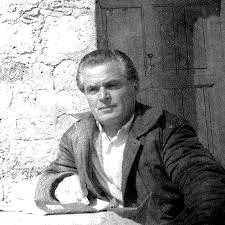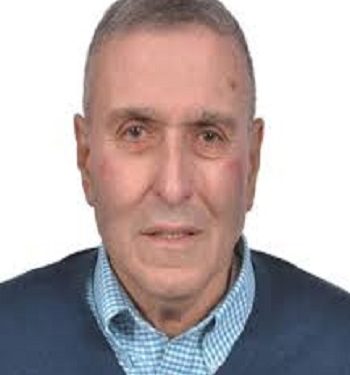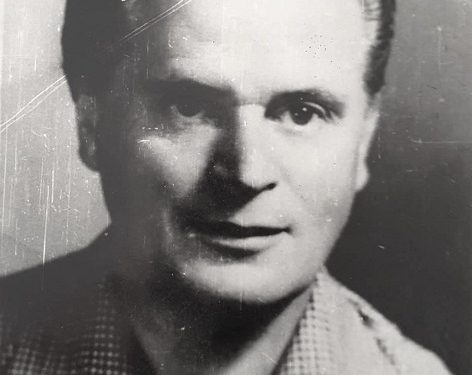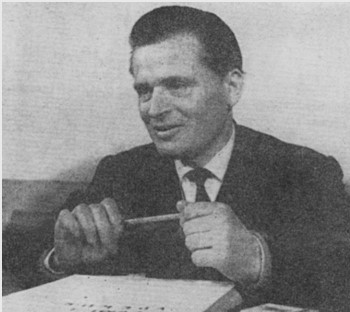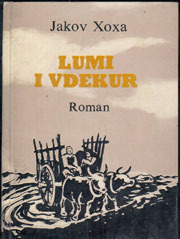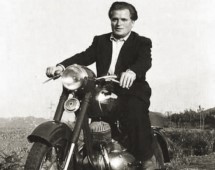By Bardhyl Çipi and Mariola Çipi
-The unknown story of the prominent patriot from Fier, Spiro Papa, delegate of the Congress of Lushnja, in Jakov Xoxa’s book “The Dead River”!-
Memorie.al / About a year ago, we published an article about Jakov Xoxa’s book, “The Dead River,” which also mentions the merchants of Fier from the years in which the book’s events take place. Unfortunately, this article was not well-received by some circles in our country, apparently because we criticized its author, Jakov Xoxa. There are numerous studies and analyses about this novel, most of them laudatory. The Academy of Sciences of Albania, in fact, honored the writer Jakov Xoxa more than a year ago by organizing several events to mark the 100th anniversary of his birth.
In some literary-scientific studies about the Fier region, for the years of this book’s events, it is noted that the main merchants of Fier, whom the author gives pseudonyms, were the Papa brothers. One of them was precisely the patriot Spiro Papa, Fier’s delegate to the Congress of Lushnja in 1920, who was the husband of our grandmother, Urania Papa.
She had loved and respected him immensely, remaining faithful to him throughout her life. He was a merchant, but in 1947, the communist regime of Enver Hoxha, considering him a “wealthy bourgeois,” arrested and brutally tortured him until they killed him, just so he would surrender any hidden wealth he might have had.
When she went to see him and found him dead, the torturers contemptuously told her: “Take the dog!” Meanwhile, his son, Justini (our mother Anastasia’s brother), suffered a severe nervous shock when he saw his father dead after this cruel murder, which ended in an incurable mental illness. He lived for many more years in the Vlora Psychiatric Hospital, where he died in the year 2000.
Our grandmother Urania Papa (or ‘Nona,’ as we called her in our family) was a very compassionate, noble, and tireless grandmother to us. We children loved her, and she loved us very much. In truth, after these tragic events, Urania’s life, although our family always stood by her, was very difficult and sad. She was considered a de-classed person, without a Party Front card, with her husband sentenced to death by the communist state.
This contemptuous and discriminatory attitude was even shown towards us. For example, I (Mariola) was once fired from my job for the reason that; “I belong to a family with wealth seized by the government,” which stressed me out immensely. When the book “The Dead River” came out in the 1960s, we, her grandson and granddaughter (Bardhyl and Mariola), started reading parts of this novel to our grandmother, where it talked about the area where she had lived. She immediately understood from Jakov Xoxa’s descriptions in this book, despite the pseudonym used, that it was talking about her husband.
This fact saddened her because, in this book, Spiro Papa was maliciously insulted and distorted. “How is this possible?” she would ask us. “We employed Jakov Xoxa when he was young and treated him like our son; and we didn’t say anything even when he stole from us; and now he makes these vile slanders about my husband.”
Even today, we remember the curse she put on Jakov Xoxa, sighing: “May you never amount to anything! We supported you with money and a job, and you humiliate us like this…!” One of Spiro Papa’s daughters, Liri Kisi (Papa), who met him by chance one day at the train station, said to him with contempt: “Aren’t you ashamed, Kovi, for what you wrote about my father? Why did you do those things?!” And he answered with indifference: “I wrote them because that’s what literature required of me.”
Who was Spiro Papa?
From our parents, his children, as well as from many other people who had known him, we have heard that they all had sympathy and respect for Spiro Papa. He loved his children and his wife Urania immensely and did everything for their good. He was well-educated, very knowledgeable, and kind, who behaved well with everyone: poor or rich.
In various documents we have seen, it appears that Spiro Papa, originally from Voskopoja, received his first education at the Monastir gymnasium and later graduated from the Faculty of Law in Bucharest. He later lived for several years in the USA, where he did additional studies at Berkeley University in California.
After returning to Albania, he engaged in commercial activity, and in 1920, as the first and only citizen from Fier who had completed full higher university studies, he was elected as Fier’s representative to the Congress of Lushnja.
Spiro Papa’s political life, starting from the Congress of Lushnja, continued for 12 years, until 1932: a supporter of Fan Noli, a senator, etc. Indeed, as the researcher Nuri Plaku expresses in his writing; “The deep knowledge from his completed studies, the many foreign languages he mastered, made him a representative of a new generation of Albanians who radiated Western culture. For this reason, he created an honored name in the ranks of Albanian legislators.”
In his discussions in parliament, among other things, he came up with the proposal to change the law, since “what we have causes abuse on the backs of the farmers; we need to make a revision…!” In addition to this, he asked to “remove the tithe on grapevines and other fruit trees…!” The article of the law that discriminates against the farmer must be renewed, and the forced labor for the peasants must be renewed, etc.,” he said.
He expressed all these positions in parliament, in defense of the peasantry, even in his relations with the peasants of the Fier area during his commercial activities. But the communist regime condemned him. About this, the researcher Nuri Plaku expresses himself in this way:
“A tribute must be paid to Spiro Papa, who gave so much in the fragile life of Albanian parliamentarianism and experienced the most ominous fate of an intellectual under the dictatorship, his physical massacre and the anathema of his name from the memory of history.”
Only after the fall of the communist regime was he rehabilitated, being decorated by the president of Albania and is being declared “Honorary Citizen” of Fier. Meanwhile, for Jakov Xoxa and his book “The Dead River,” which is being honored undeservedly today, a well-known scholar (whose name we are not mentioning out of ethics) has expressed himself in this way:
“A writer of a questionable level. It was difficult to read ‘The Dead River’ without someone forcing you to, due to the mediocre artistic level. In addition, the author has made the merchant Spiro Papa a negative character, the man who was close to him and employed him. Ingratitude and ‘betrayal,’ very negative human characteristics, were also traits of Jakov Xoxa. If someone claims to be a great writer, let them conduct a survey to see how many citizens know and have read his graphomanias!”
So, this flunky writer of the communist regime, through slanders against this hero of Albania’s Western orientation, and unjustly condemned, sought in this way only to climb higher in his career. Memorie.al




